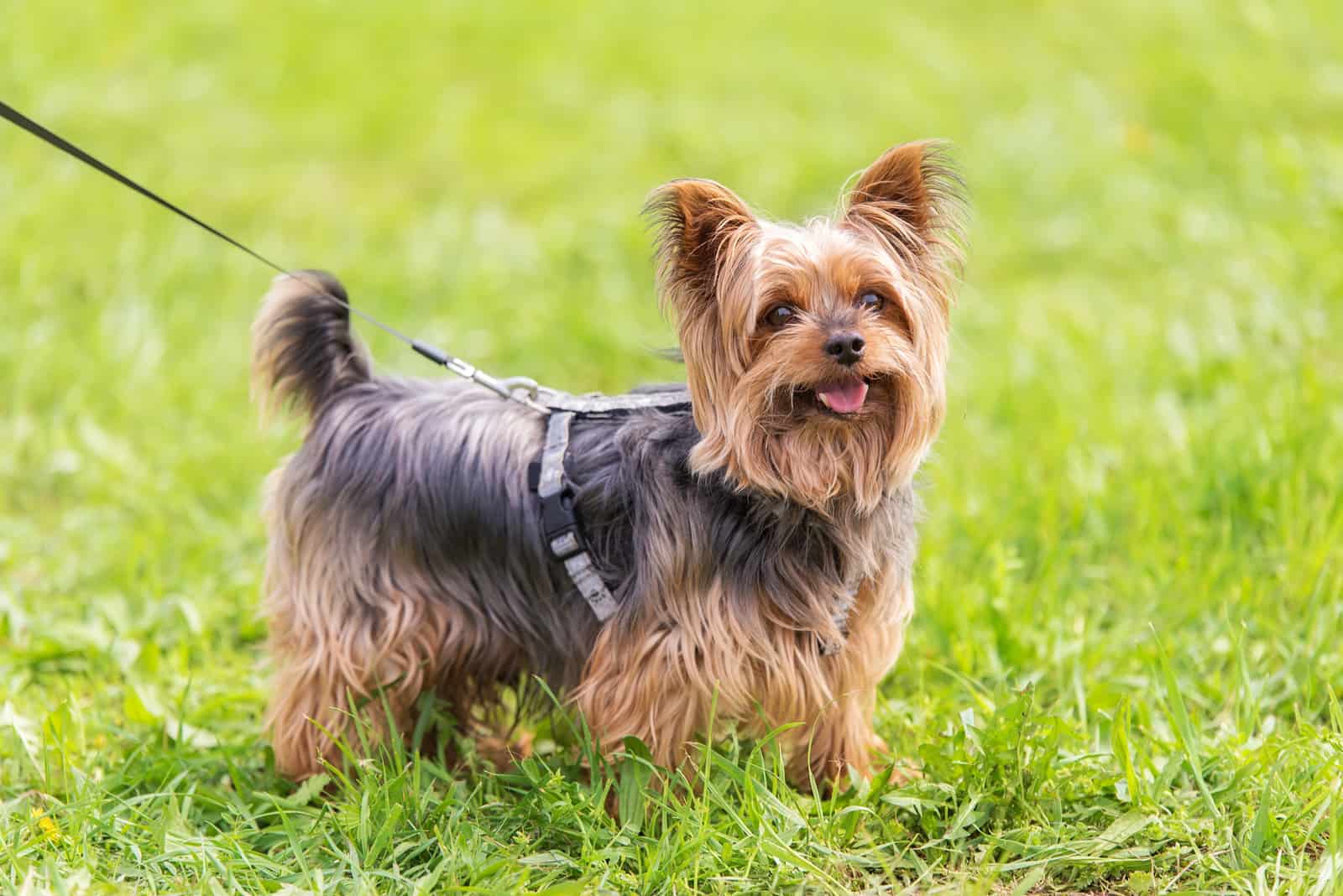The Yorkshire Terrier, a pocket-sized, feisty ball of fur with a lot of love to give. But which is better for you, the female or male Yorkie? There’s no simple answer, as different dogs are suited to different circumstances and situations. The best thing to do is to examine each breed to help you discover which one will suit you best.
To help you in this task, here are some answers to commonly asked questions regarding the male Yorkshire Terrier that will help you make up your mind.
Are Male Yorkies Aggressive?
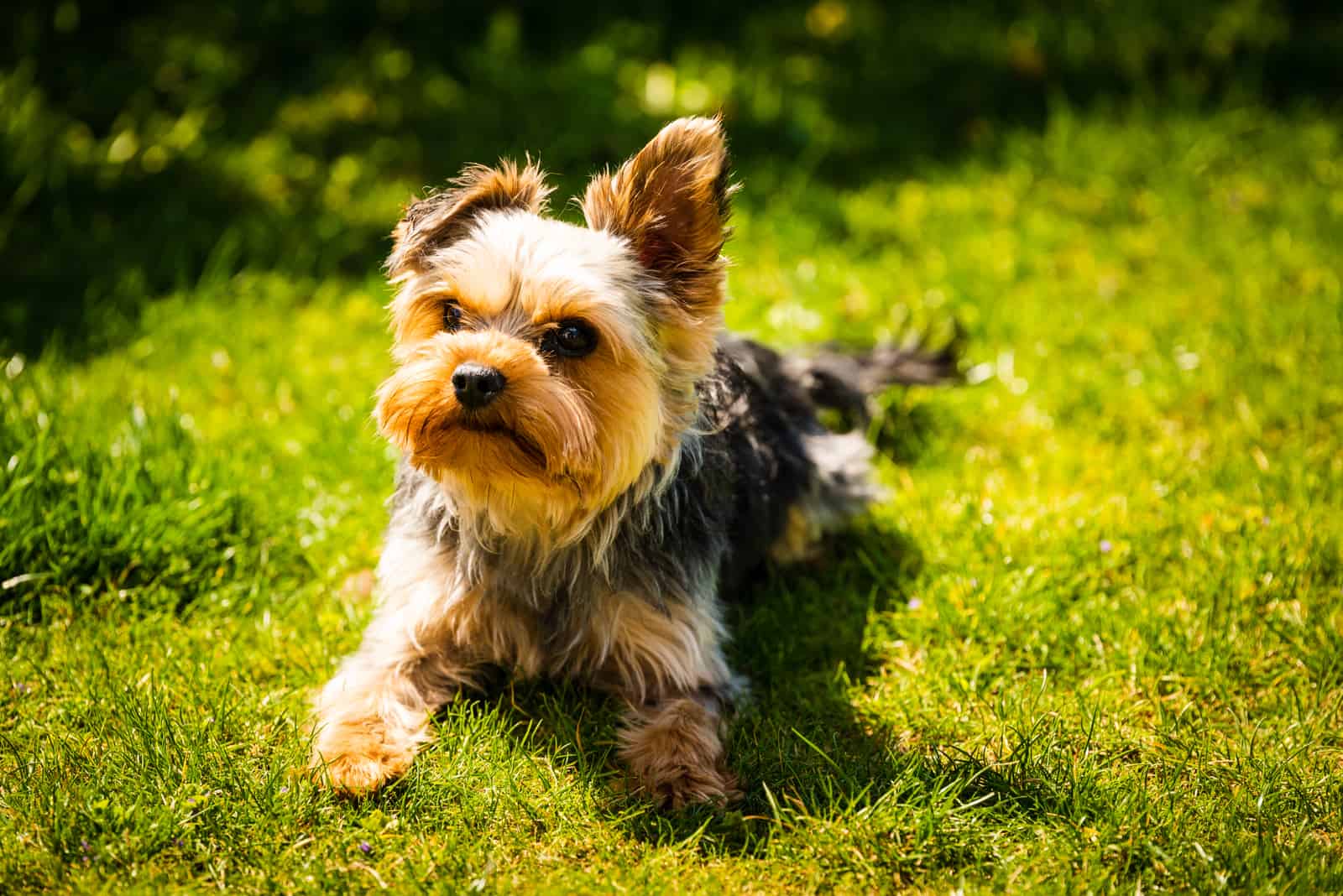
In general, male Yorkies are considered more aggressive than females.
However, this is always a difficult question to answer as dog behavior is often misunderstood and misconceptions abound. What we might see as being aggressive may be a natural reaction to a range of factors. Most dogs can display aggressiveness at certain times, depending on the breed and the circumstances.
Dogs don’t have a voice to tell you what’s bothering them. They may have a hidden injury beneath their fur. They could have stomach pain or aching joints. They may be frightened or confused by something. If you happen to touch them in the wrong spot or at the wrong time, they will be inclined to react badly!
When you consider that most older dog breeds were established to fill a role in the past that was usually related to hunting, herding, or protecting, it is little wonder that some of them retain an instinct for aggression deep within their genes.
The history of the Yorkshire Terrier is uncertain, but many believe that they were bred to hunt rats in the mills of northern England, a role that required a killer instinct.
However, the majority of breeds have had these traits removed over time. What we might see as aggression is usually an instinct to protect their pack and their home.
Any dog that feels vulnerable or threatened will tend to take a defensive stance.
Yorkies will usually warn first with a growl. If this is ignored, then they will snap their jaws, usually without making contact, which is a second warning. This will be followed by a nip, which doesn’t break the skin.
A Yorkie that goes as far as actually biting should be classed as being aggressive. Likewise, excessive barking, especially in a deeper tone than usual, is regarded as aggressive behavior. If this persists, then you are advised to seek help through proper training, socialization, and behavior therapy to calm them down.
So, the male dog is generally more aggressive than the female Yorkie. Let’s look into this a bit further.
Why Is My Male Yorkie So Aggressive?
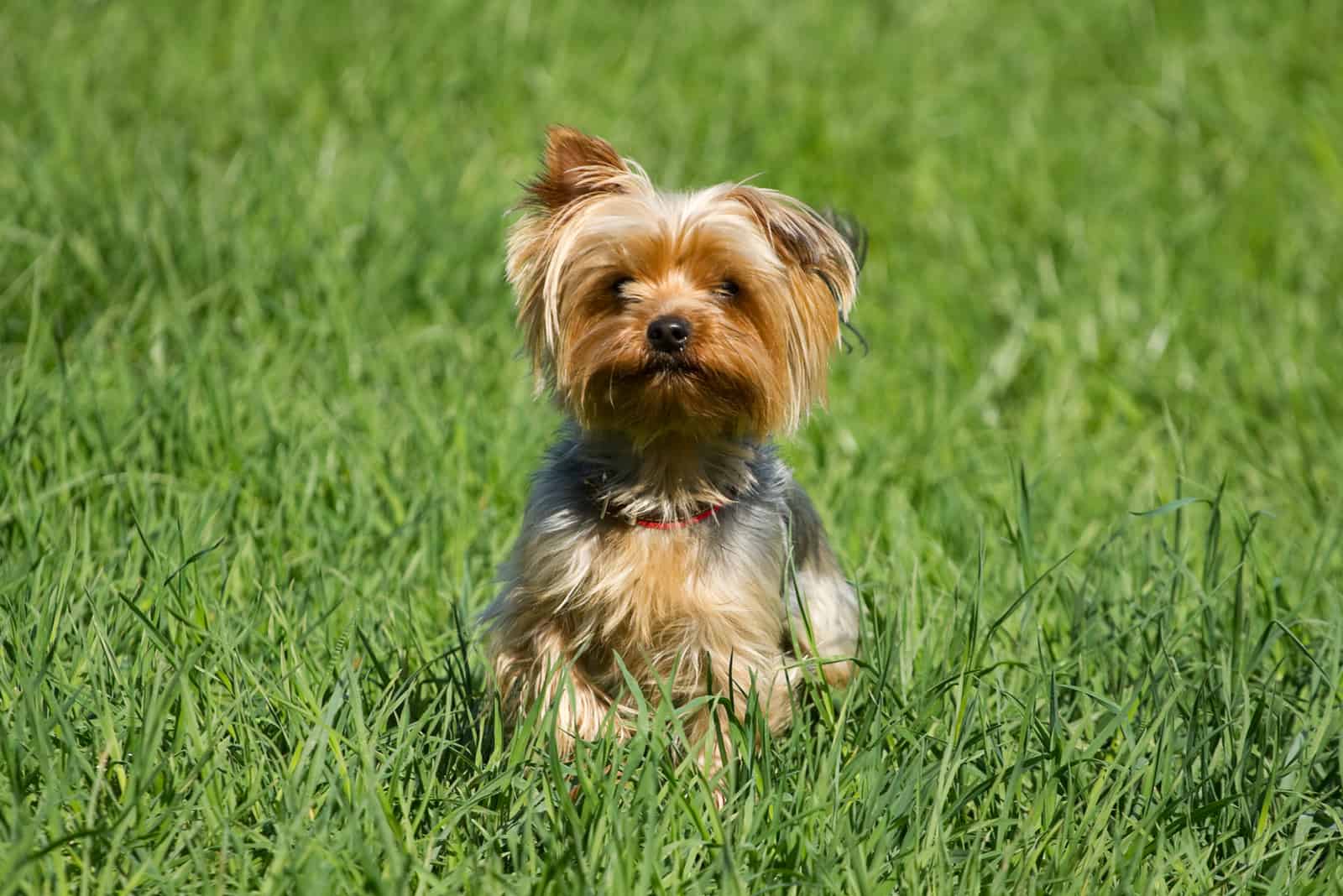
If you are considering getting a Yorkshire Terrier and have been put off by seeing questions like this, then it might help if we dig a little deeper into the Yorkie’s biology.
As we have seen, there are different interpretations of aggressive behavior, some of which are understandable. However, it has to be said that – breed characteristics aside – certain individual dogs will just have an aggressive streak.
Male dogs tend to have a stronger sense of territory and social hierarchy. Yes, that tiny ball of fluff will try to protect you and your home from any intruders, as well as making sure that ‘the pack’ stays in line! They will mark their territory (more on this later) and check anyone who they believe is stepping out of line, which will usually be small children or other small pets.
To balance this out, female Yorkies can also display independence and aggression, especially when their nesting instinct kicks in.
Of course, we also have to consider dogs that have come from shelters. It could be that they suffered from abuse at a former home, which has taught them to protect themselves and react to particular people or situations. The only remedy for this is patience, training, and a lot of love.
Dog training lessons are the best answer for a Yorkie puppy who appears overly aggressive, but keep in mind that some of this behavior may be to do with teething, which can be particularly painful and irritating to them.
Finally, some of that belligerence could be due to sexual frustration!
Will Neutering My Yorkie Calm Him Down?

This is seen as a general remedy to behavioral problems in most male dogs and could offer a solution to particularly aggressive male Yorkies.
Yorkies have an awful lot of energy for such a tiny dog. When coupled with their natural urges that often lead to those potentially embarrassing (or hilarious) humping sessions, they can be a bit of a handful.
Neutering (surgically removing their ability to reproduce) is sometimes seen as cruel, but it actually offers many benefits, including a lower risk of testicular cancer.
This procedure will reduce their urge to reproduce, which eases the pressure considerably. Without all those hormones bouncing about in their little bodies, there’s a good chance that they’ll calm down.
However, as each dog is different, there is a chance that they’ll still be energetic and a little bit crazy!
If you’re trying to decide between a male or female Yorkshire Terrier, don’t forget that the latter has its share of problems. The female dog will undergo hormonal changes related to its heat cycle, which happens roughly twice a year and can last between two weeks to one month.
Spaying (the female equivalent of neutering) is an option, which can reduce some of the health problems they face, as well as calm them.
Of course, spaying and neutering are not an option if you plan to breed your pup when they are mature!
Why Is My Yorkie Peeing Everywhere?
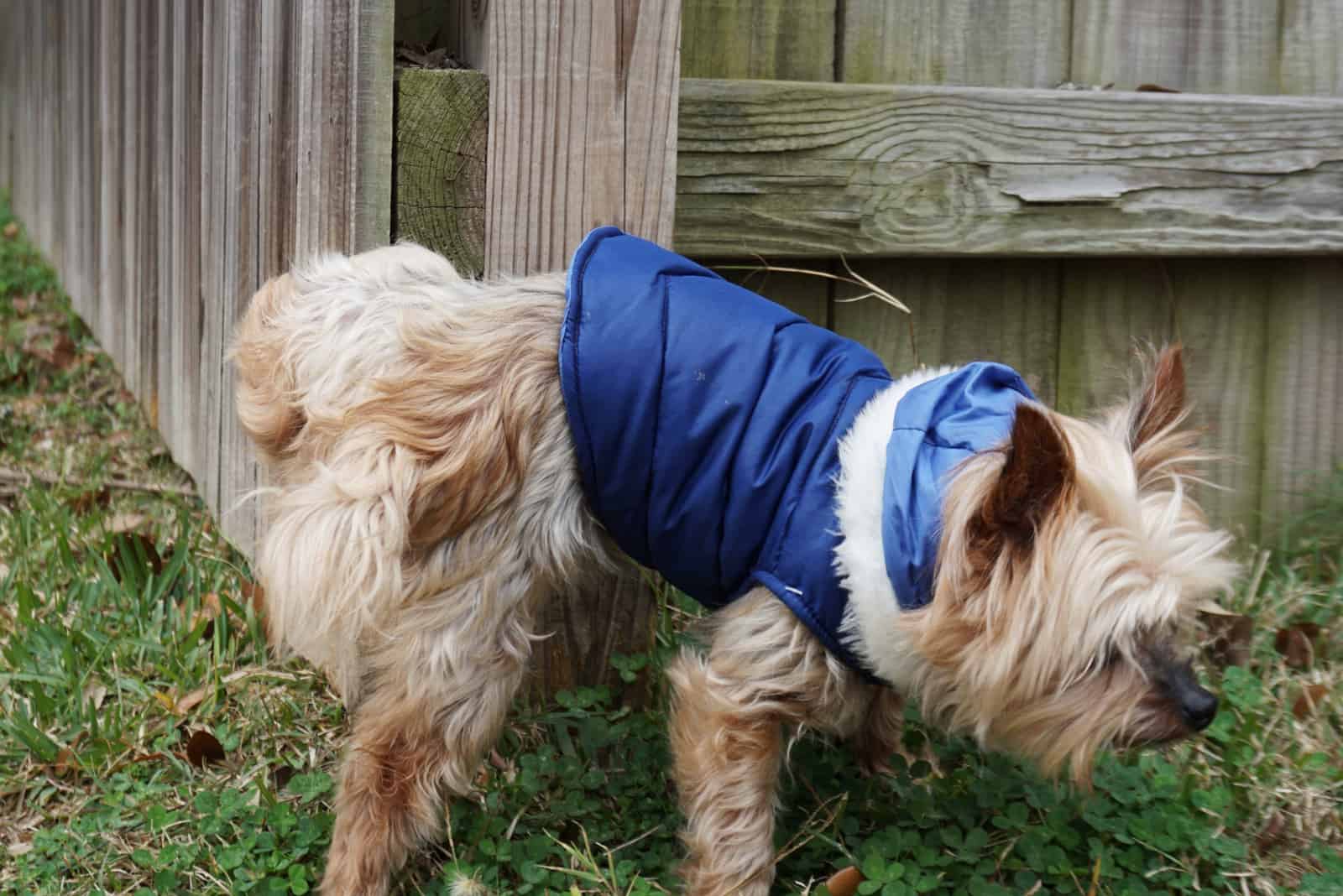
Basically, it’s so other dogs know that this spot belongs to them!
All dogs have fantastic noses. Research is only just beginning to help us understand just how amazing they are. A dog can tell a lot from sniffing another dog’s pee. They can determine its sex, age, and state of health! Every scent is a bit of information that it ‘sees’ through its nose, helping to build a fuller picture of the world than we can imagine.
But all this doesn’t help you when your Yorkie is marking its territory all around your home!
As with aggression, neutering (also called castration or fixing) can offer a solution to this behavior.
Although marking territory is often the main reason for peeing, there are other possible causes that should be explored:
• Kidney problems, diabetes, and urinary tract infections will make your dog urinate more or make them lose control of their bladder. Check for symptoms and get them checked out at the vet.
• Submissive behavior will sometimes involve peeing! They see you as the pack leader and will roll on their back, sometimes urinating as a sign of submission, usually as they greet you when you arrive home. The best way to handle this is to not make a fuss straight away and wait until they have calmed down before greeting them.
• When dogs get overexcited, they can pee unexpectedly. Similar to the above problem, it’s best to try to calm them down rather than getting them more worked up.
• Anxiety can also have the same consequences, usually connected with separation. Try not to leave them alone for long periods, and get friends, family or neighbors to call in if possible when you have to be out.
• A lack of training can lead to male Yorkies urinating all around the house. They need strict and firm training, so they know that this is not acceptable. Don’t scold them when you find a patch that’s already there, but a loud ‘NO!’ when you catch them in the act can be effective. Likewise, reward them when they go potty outside so they can learn right from wrong.
Are Male Yorkies Hard To Potty Train?
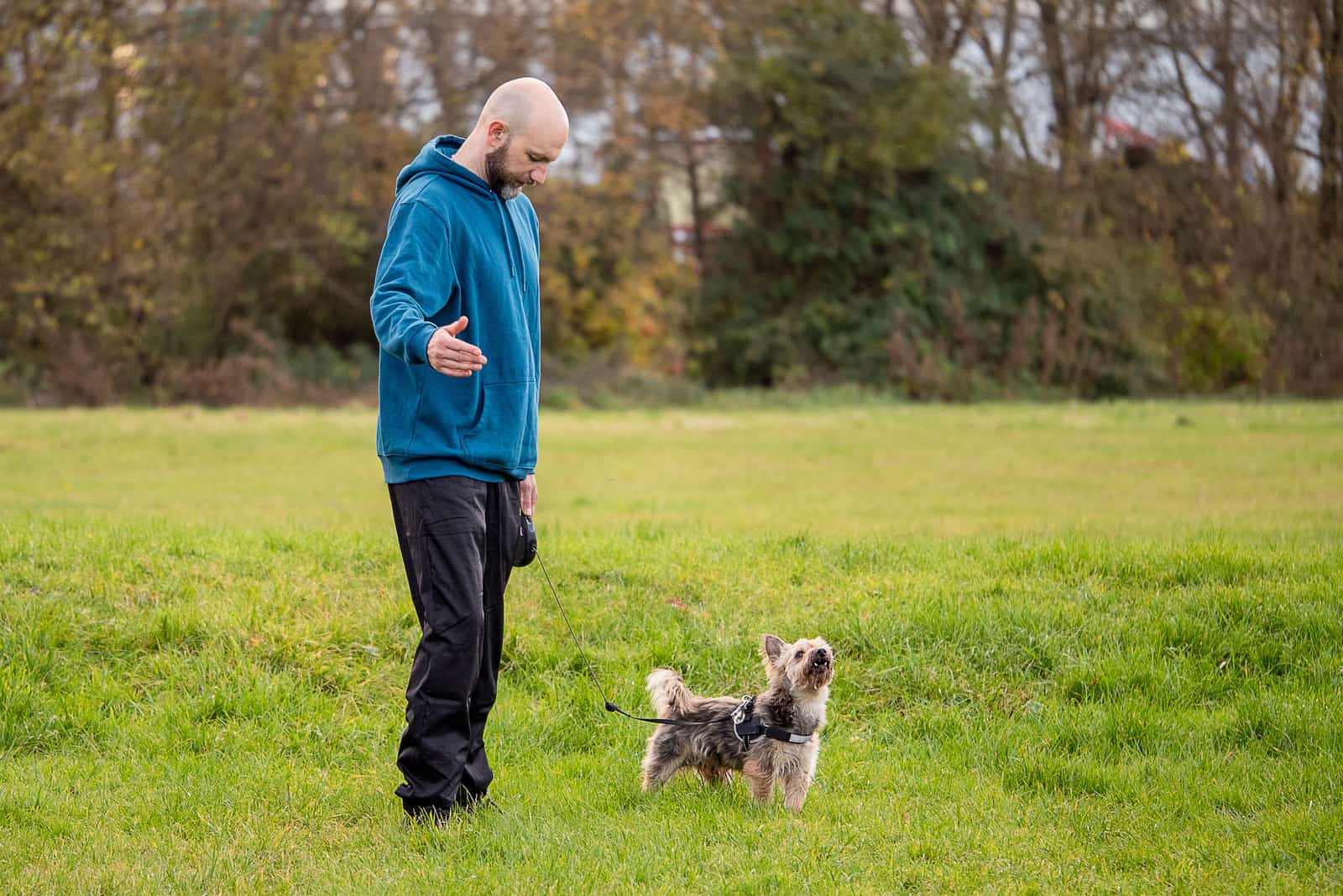
Having touched on the subject above, it has to be said that Yorkies are notoriously difficult to potty train, as with most small breeds.
This goes for both sexes, not just male dogs!
Don’t expect them to let you know when they need to go. They will probably look at you expectantly, as they are waiting to be picked up rather than use their own legs to go outside.
They have tiny bladders that won’t be able to hold it in for long, so be prepared for accidents when they are puppies.
Part of the problem may lie in where you get the pup from. If you buy from a breeder, you’ll get a young pup, which is a good place to start. The earlier you begin the training, the better the results. And if you get your pup from a reputable breeder, they will most likely have trained them already, or at least begun the process, making your life much easier!

However, if you buy from a pet store, the pup will probably be older, meaning that it will have gotten used to relieving itself in a cage.
In the latter case, you need to be prepared for the long haul as you eradicate this behavior.
To make your task easier, you might want to consider crate training. It provides a safe space for your dog and limits the chances of them peeing or pooping around the home, although you should try to discourage him from going inside the crate as much as possible.
About once an hour, you should take them outside to a specific place every time that is, ideally, free from distractions and feels safe.
Give them a short command that is easy to understand and learn, and when they respond by doing their business, you should reward them so they can connect this behavior with it.
How Old Does A Male Yorkie Need To Be To Breed?
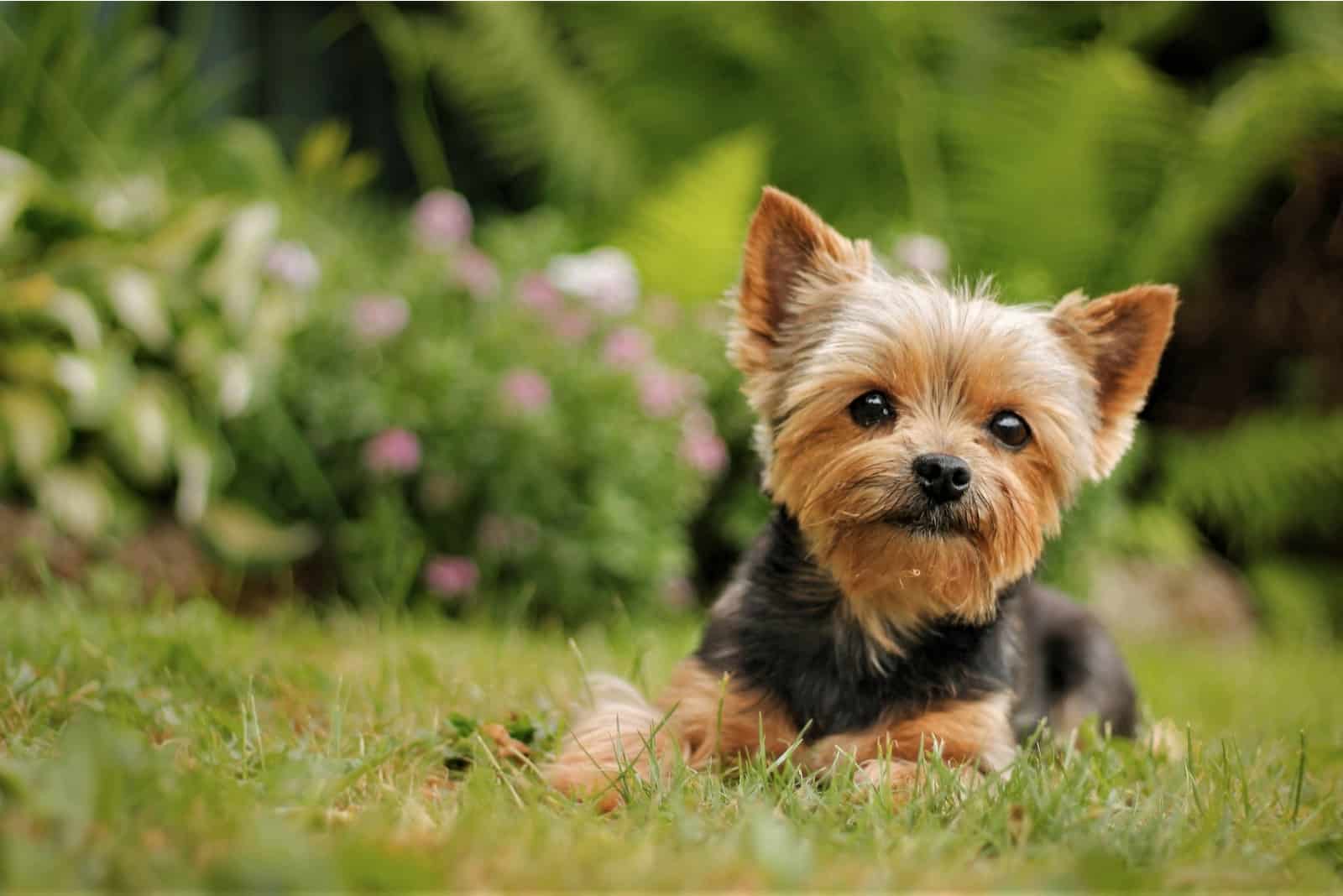
A male Yorkie starts producing sperm at six months of age, although they won’t be fully mature until they are two years old. This is an important fact if you are considering breeding your dog.
All purebred dogs have an increased risk of carrying genetic disorders that can lead to health issues when they are older. Many of these conditions will not be apparent before the dog reaches maturity, so there is a chance that a younger dog may pass on these genes to its pups if it is bred too early.
Buying a pup with the intention of breeding is not something to be taken lightly. Depending on where you are based, there may be official paperwork to complete, and some states require you to have a license.
Breeding dogs should always be done for the right reasons, not just as a money-making scheme. This leads us nicely to the next question.
How Much Is A Male Yorkie Worth?
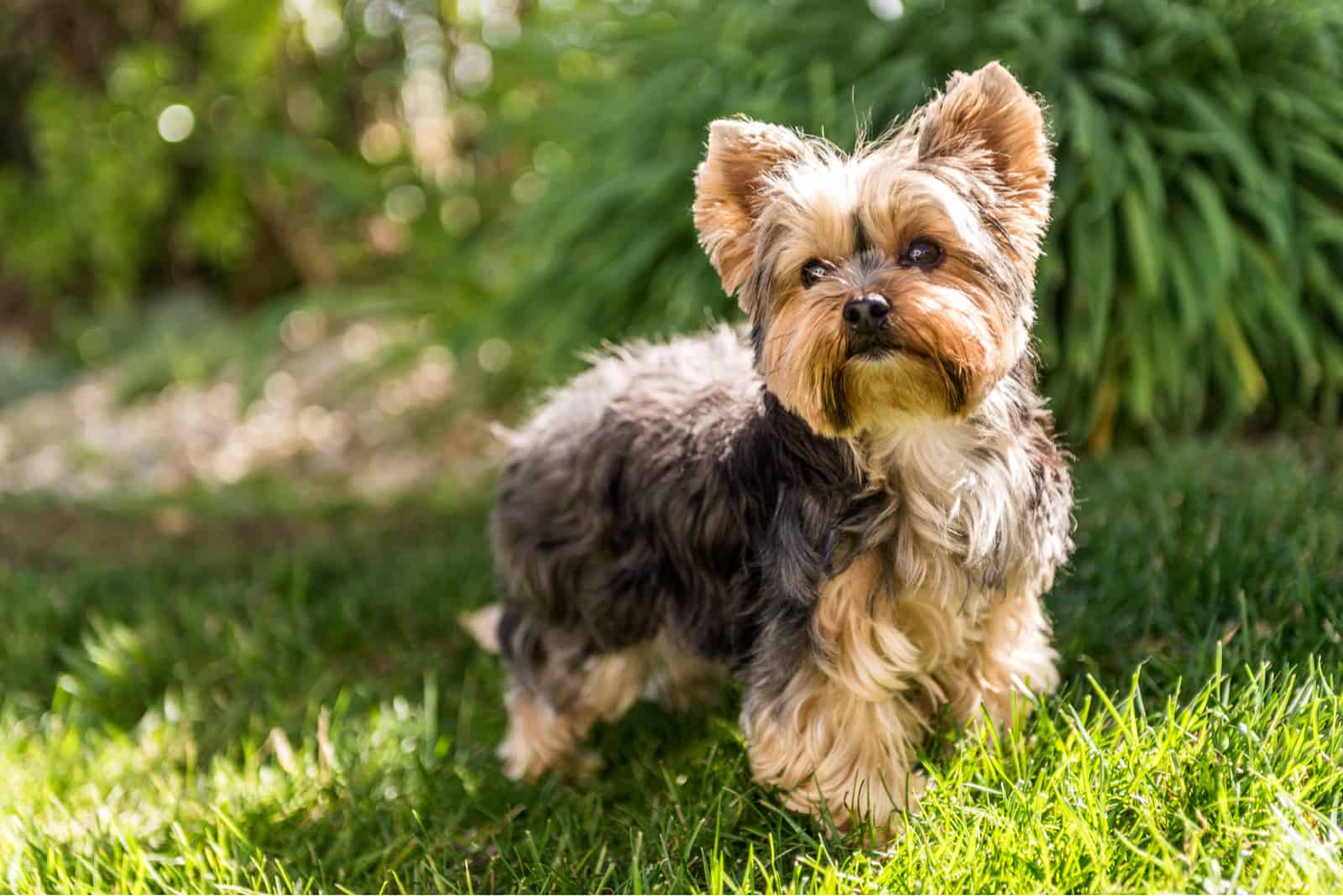
On average, a purebred Yorkshire Terrier puppy will cost between $1,200 and $1,500.
This seems a lot of money for such a small dog! Part of the reason is that they are purebred dogs. Another reason is that they have experienced surges in popularity among the aristocracy and celebrities over the years. Any increase in demand will drive up the price!
Also, as with most small breeds, they are easy to care for and have a lifespan of between twelve and sixteen years. They adapt well to most living situations, don’t need a lot of space, and you can play with them any time. And they won’t need a huge amount of food!
Female Yorkshire Terriers may fetch a higher price because of their breeding potential.
So, Are Girl Or Boy Yorkies Better?

When looking at male vs female Yorkies, it’s easy to fall for generalizations. Many websites about Yorkies will try to exaggerate certain traits or sway you one way or another as to which is the better pet.
Aside from the issues we’ve highlighted here, there is no real difference between the two. Both are very affectionate and eager to please. They will get on with other family members and pets, especially if trained and socialized from a young age.
They don’t need much exercise, although they will enjoy playtime to expend their energy before settling down for a cuddle. The American Kennel Club (AKC) lists them as a toy dog, while the UK Kennel Club lists them as a companion dog.
In truth, they are both, making them an ideal choice for first-time dog owners.
Whether a female or a male Yorkie, this feisty little furball will make an excellent watchdog, playmate, and companion! And on top of that, they can be well suited for people with dog-related allergies.
Read Next: 8 Yorkie Breeders In Florida That You Can Trust

